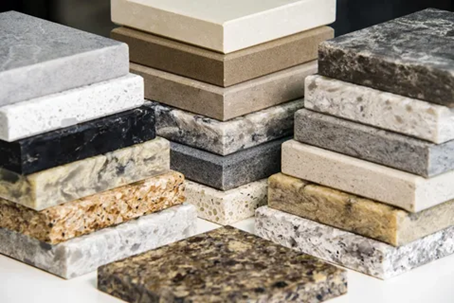The Environmental Effects of Marble Mining and Extraction
Marble mining and extraction have a significant impact on the environment. The process involves the removal of valuable rock from deposits beneath the earth’s surface, which often results in the destruction of natural habitats and the loss of biodiversity.
The extraction of marble requires heavy machinery and equipment, which emit harmful pollutants such as carbon dioxide and sulfur dioxide. These emissions can contribute to air pollution, which can have serious health effects on nearby communities.
Water is also a vital resource that can be impacted by marble mining. The extraction process can contaminate groundwater sources, and the use of water can contribute to soil erosion and deforestation. In addition, the disposal of waste and excess material from the mining process can lead to water pollution.

The environmental impact of marble mining can also extend to wildlife. The destruction of natural habitats can lead to the displacement of species, and heavy machinery can directly harm animals in the mining area.
To mitigate the environmental impacts of marble extraction and mining, companies can implement sustainable practices such as minimizing waste and using green energy sources. Additionally, government regulations can be put in place to ensure that mining companies are held accountable for their impact on the environment.
In conclusion, while marble mining and extraction can have negative environmental effects, steps can be taken to mitigate these impacts and ensure a more sustainable future.
The Negative Impact of Marble Mining on the Environment
Marble mining has a negative impact on the environment because it leads to deforestation, soil erosion, and air and water pollution. Marble is extracted using heavy machinery that destroys vegetation and wildlife habitats. The process of mining also results in soil erosion, which can lead to flooding and landslides. The use of explosives in the mining process releases dust and other harmful particles into the air which can cause respiratory problems for nearby communities. Additionally, marble mining can contaminate nearby water sources with chemicals and heavy metals which can harm aquatic life and negatively impact human health. To minimize the negative impact of marble mining on the environment, companies need to implement sustainable and responsible mining practices that prioritize environmental protection. It is important to raise awareness about the negative impact of marble mining on the environment and to encourage responsible practices in the industry.
How Marble Mining and Extraction Affect the Ecosystem
Marble mining and extraction can have a significant impact on the ecosystem. The mining process involves clearing the area of vegetation, soil, and rocks, resulting in the loss of habitat and biodiversity. The use of heavy machinery and explosives also contributes to air and noise pollution, which can harm wildlife and nearby communities.
Moreover, the excavation of marble can alter the natural water flow, leading to soil erosion and sedimentation in nearby streams. This affects aquatic life and disrupts the balance of the ecosystem. The extraction of marble also requires a considerable amount of energy, which contributes to greenhouse gas emissions and climate change.

It is crucial to implement sustainable mining practices to minimize the negative impact on the ecosystem. These practices include using eco-friendly technologies, reusing water, reducing waste generation, and restoring the affected areas. By adopting these measures, we can ensure that the marble mining industry operates in harmony with nature, thus preserving the environment for future generations. Therefore, it is vital to consider the environmental impact of marble mining and extraction and take steps to mitigate its effects.
The Ecological Consequences of Marble Mining and Extraction
Marble mining and extraction have significant ecological consequences. Ecological consequences refer to the impact of human activities on the natural environment. Marble mining involves the removal of large quantities of rock, vegetation, and soil that alter the landscape and habitat of wildlife. Moreover, the processing of marble involves the use of water and energy that can result in pollution and habitat destruction. The release of chemicals and waste materials into the environment can harm aquatic life and soil fertility. Therefore, it is crucial to reduce the negative impacts of marble mining and extraction on the environment. Implementation of eco-friendly mining techniques, proper waste disposal and the use of protective measures can decrease environmental degradation, and preserve the biodiversity of the region. Hence, it is essential to raise awareness and encourage responsible practices in the marble mining industry.
The Environmental Risks of Marble Mining and Extraction
Marble mining and extraction poses significant environmental risks and can have negative impacts on the surrounding ecosystem. The extraction process often involves heavy machinery and explosives, which can cause soil erosion, deforestation, and habitat destruction for local wildlife.
Additionally, the transportation of marble from mining sites to processing plants and markets can contribute to air pollution and greenhouse gas emissions. The extraction and processing of marble also require large amounts of water, which can lead to water scarcity and pollution.

To mitigate these environmental risks, it is essential to use sustainable practices in the marble mining and extraction industry. This may include implementing environmentally-friendly techniques such as solar power and water recycling. Furthermore, promoting responsible and sustainable extraction practices can help to minimize negative impacts on the environment.
In conclusion, the environmental risks of marble mining and extraction should be addressed to promote sustainable and responsible practices in the industry. By doing so, we can protect our environment and preserve it for future generations.
The Harmful Effects of Marble Mining on Natural Resources
Marble mining is a well-known industry that has been providing building and construction materials for centuries. However, the extraction of marble also has harmful effects on natural resources. The process of marble mining can lead to deforestation, soil erosion, land degradation, and even species extinction.
Deforestation: The process of marble mining requires clearing large patches of forested area to create space for quarries. This practice leads to deforestation, which has a significant impact on the ecosystem. Trees are essential for maintaining air quality, reducing greenhouse gases, and regulating the water cycle. Deforestation has far-reaching effects that can be felt for generations.
Soil erosion and land degradation: Marble mining involves the removal of topsoil, exposing the underlying rocks. This makes the area vulnerable to soil erosion and land degradation. The movement of rocks and soil can block the waterways, leading to flooding, loss of crops, and even loss of lives.
Species extinction: The extraction of marble can also lead to the extinction of species. This occurs when the quarrying process disturbs the natural habitats of animals and plants. As a result, some species are unable to adapt to the new environment, leading to their extinction.
In conclusion, the harmful effects of marble mining on natural resources cannot be overlooked. The industry needs to adopt sustainable practices that prioritize the environment’s conservation. This involves minimizing the use of chemicals, reducing waste production, and rehabilitating the mined land. With these measures, we can preserve the natural resources and leave the planet in a better state for future generations to come.
The Impact of Marble Mining on Air and Water Quality
Marble mining, a flourishing industry around the world, has a significant impact on air and water quality. The dust and emissions from marble mining machinery and equipment can pollute the air, leading to respiratory problems and other health issues. Meanwhile, the chemicals and minerals from the mining process may also contaminate water sources, adversely affecting aquatic ecosystems and posing risks to human health.

To mitigate these impacts, it’s essential to implement proper measures to control emissions from mining equipment and machinery and to treat wastewater from mining activities. Additionally, creating awareness and educating stakeholders about sustainable mining practices can help minimize the negative impact of marble mining on air and water quality.
At Granite Expo, we prioritize environmentally responsible practices and believe in protecting the planet while delivering high-quality products. Our marble mining and processing operations adhere to strict environmental standards and utilize the latest technologies to minimize our carbon footprint and maximize water utilization efficiency. Contact us to learn more about our sustainable business practices and products.
The Importance of Sustainable Marble Mining and Extraction Practices for the Environment
Marble mining and extraction practices have a significant impact on the environment. It is important to prioritize sustainable methods to minimize this impact. Sustainable marble mining and extraction practices involve using modern technologies to reduce waste and protect the environment. These practices also include proper soil management and reclamation of the land after mining. Using sustainable methods not only reduces environmental damage but also improves social and economic sustainability by ensuring the longevity of the industry. In sum, The Importance of Sustainable Marble Mining and Extraction Practices for the Environment cannot be overstated and must be a prime focus for all involved in the industry.
